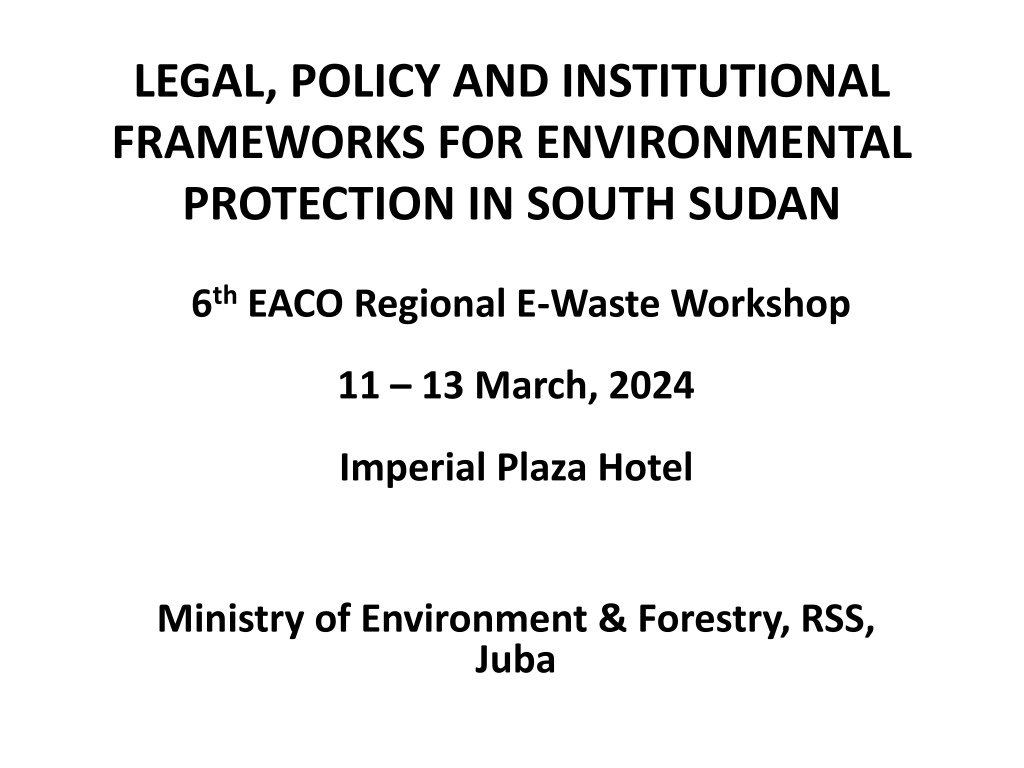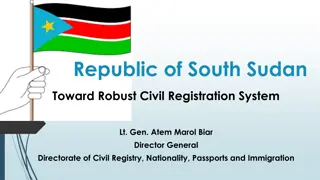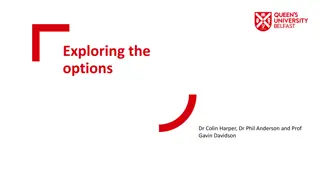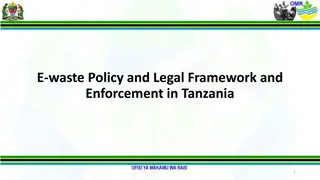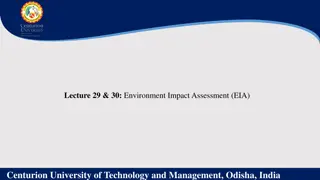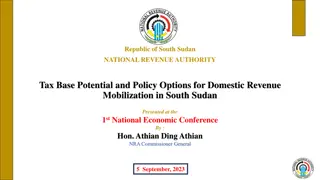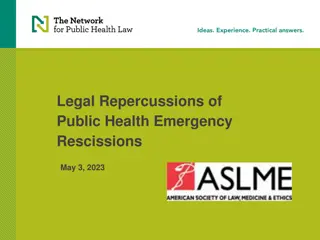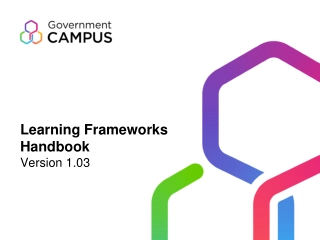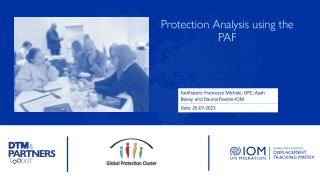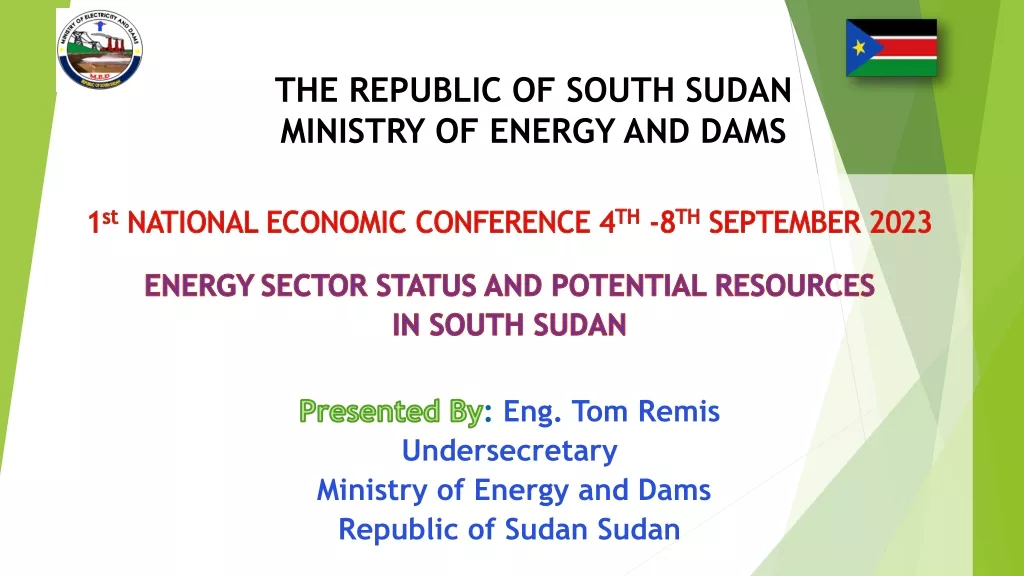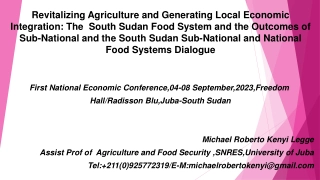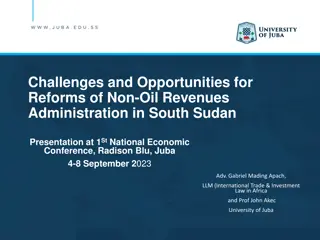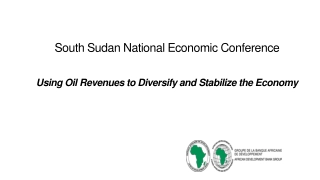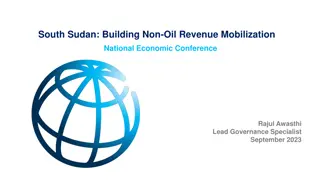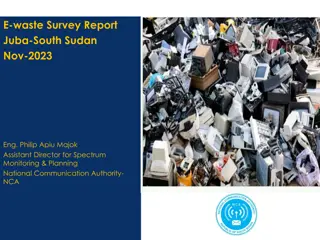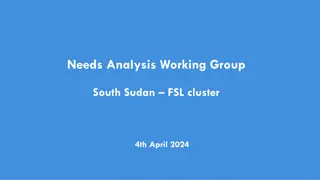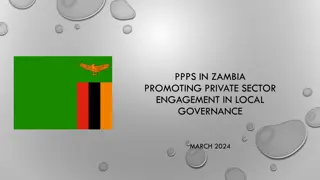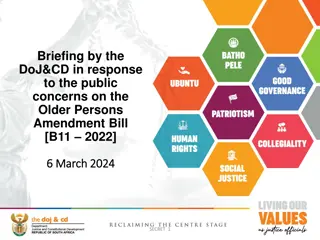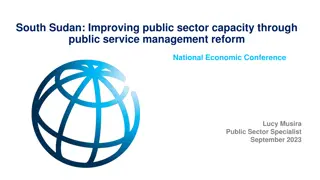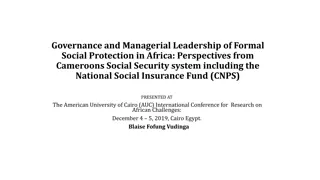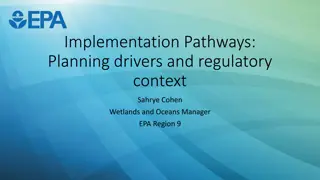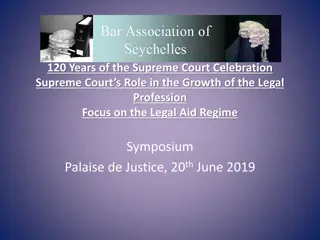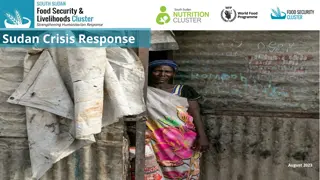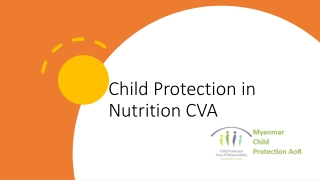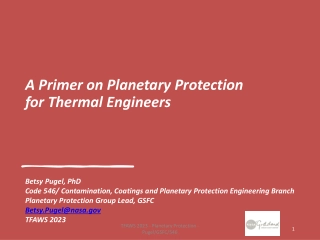Legal and Policy Frameworks for Environmental Protection in South Sudan
The presentation outlines the national legal, policy, and institutional frameworks for environmental protection and management in South Sudan. It covers the Transitional Constitution, relevant policies, and challenges faced in implementing environmental protection measures.
Download Presentation
Please find below an Image/Link to download the presentation.
The content on the website is provided AS IS for your information and personal use only. It may not be sold, licensed, or shared on other websites without obtaining consent from the author. Download presentation by click this link. If you encounter any issues during the download, it is possible that the publisher has removed the file from their server.
Presentation Transcript
LEGAL, POLICY AND INSTITUTIONAL FRAMEWORKS FOR ENVIRONMENTAL PROTECTION IN SOUTH SUDAN 6thEACO Regional E-Waste Workshop 11 13 March, 2024 Imperial Plaza Hotel Ministry of Environment & Forestry, RSS, Juba
Presentation Outline Introduction National Legal and Policy frameworks for environmental protection and management Institutional framework (arrangement) National Environmental Policy and Waste Management Environmental rule of law Challenges and opportunities
Introduction: The Transitional Constitution of the Republic of South Sudan (2011) allocates the responsibilities of protection of the environment to the national government; In exercising of these powers and responsibilities, the government must establish appropriate institutional arrangements that will ensure protection and management of the environment.
National Legal and Policy frameworks for environmental protection & management The relevant national legal and policy frameworks are: a) The Transitional Constitution of South Sudan (2011); b) The R-ARCSS (2018) c) The National Environment Policy (2015 2025); d) The Draft South Sudan Environment Bill (2023);
a) The Transitional Constitution of South Sudan (2011); As stipulated in Section 41 of the TCSS 2011: The Transitional Constitution provides for the fundamental right community in South Sudan to have a clean and healthy environment; The Transitional Constitution further commits all levels of government in South Sudan to ensure that the environment is protected for the benefit of the present and future generations, through reasonable legislative action and other measures; of every person or
b) The R-ACRSS The Revitalized Agreement for Resolution of Conflict in South Sudan (R-ARCSS) in Articles 1.10.3.7, 4.6.1.3, 4.9.1 and 4.9.2 provide that: The national Ministry of Environment and Forestry was established in the RTGoNU under the Economic Cluster; The RTGoNU shall establish the Environmental Management Authority (EMA) upon commencement of the tranitional period; The RTGoNU shall develop comprehensive policies and legal institutional frameworks for the preservation, conservation and sustainable use of the environment.
Cont/. The feasibility study of any project must include an environmental impact certificate from the Ministry of Environment and Forestry.
c) National Environment Policy (2015 -2025) The National Environment Policy will: give effect to the Constitutional environmental rights of the people or Community; give effect to the Ministry s vision of ensuring a healthy and clean environment for all; promote compliance with the environmental legal frameworks; demonstrate the Ministry s commitment to sustainable development; provide an institutional framework for Policy implementation;
d) Draft Environment Bill (2023) The purpose of this Bill is to provide for establishment of a legal and institutional framework for the protection and sustainable management of the environment. This Bill is drafted in accordance with the provisions of Article 4.6.1.3, 4.9 of the R-ARCSS and 41 of the Transitional Constitution, 2011, which grants the Government of South Sudan concurrent authority over protection and management of the environment. The provisions of this Bill apply throughout South Sudan in all matters related to environment.
Institutional framework (arrangements): Based on the decentralized nature of South Sudan there are three levels of governments, namely: national government (GOSS), State governments, Local government Environmental management will be decentralized to more local levels of governments Environment is a cross-cutting (shared) responsibility among all stakeholders Waste management is a municipal function, implying it is the responsibility of the local government, particularly the Municipality / City Council for this matter
The National Environment Policy and Waste Management Ch 4, Article 4.1 of the National Environment Policy is about Waste Management and Sanitation. Thus the policy aims to: Regulate and improve management of waste in South Sudan; Promote Reduction, Recycling and Reuse (3R) as well as the segregation and categorization of solid waste prior to disposal; Encourage private sector investment in waste management; Promote Public Private Partnership (PPP) on waste management issues;
Cont/ Develop a holistic and integrated strategy for the management of municipal, septic or pharmaceutical, electronic waste, industrial and hazardous wastes; Encourage community participation in waste management; Promote education and awareness programmes on waste management issues
Environmental Rule of Law Chapter 5 of the National Environment Policy is about the environmental rule of law: The instruments to achieve this include, among others: National environmental legislations Regional and international cooperation Implementation of multi-lateral environmental agreements (MEAs) Punitive measures and sanctions Registration of consultants and consultancy firms Environmental assessments (EIA & Audits)
Cont/ Environmental standards Environmental enforcement and compliance Handling environmental crimes Environmental education and awareness
Challenges Lack of data on e-waste; Lack of stand alone legal framework for waste management, including e-waste; informal e-waste (collection) vendors; Lack or limited awareness about dangers of improper handling of e-waste
Opportunities Job creation for dealers in e-waste recycling; Development of policy and legal frameworks for e-wastes; Awareness-raising campaigns for people to know the dangers/hazards regarding poor handling/management of e-wastes; Having strong coordination and collaboration among stakeholders in management of e- wastes.
Thanks for your attention Any queries
